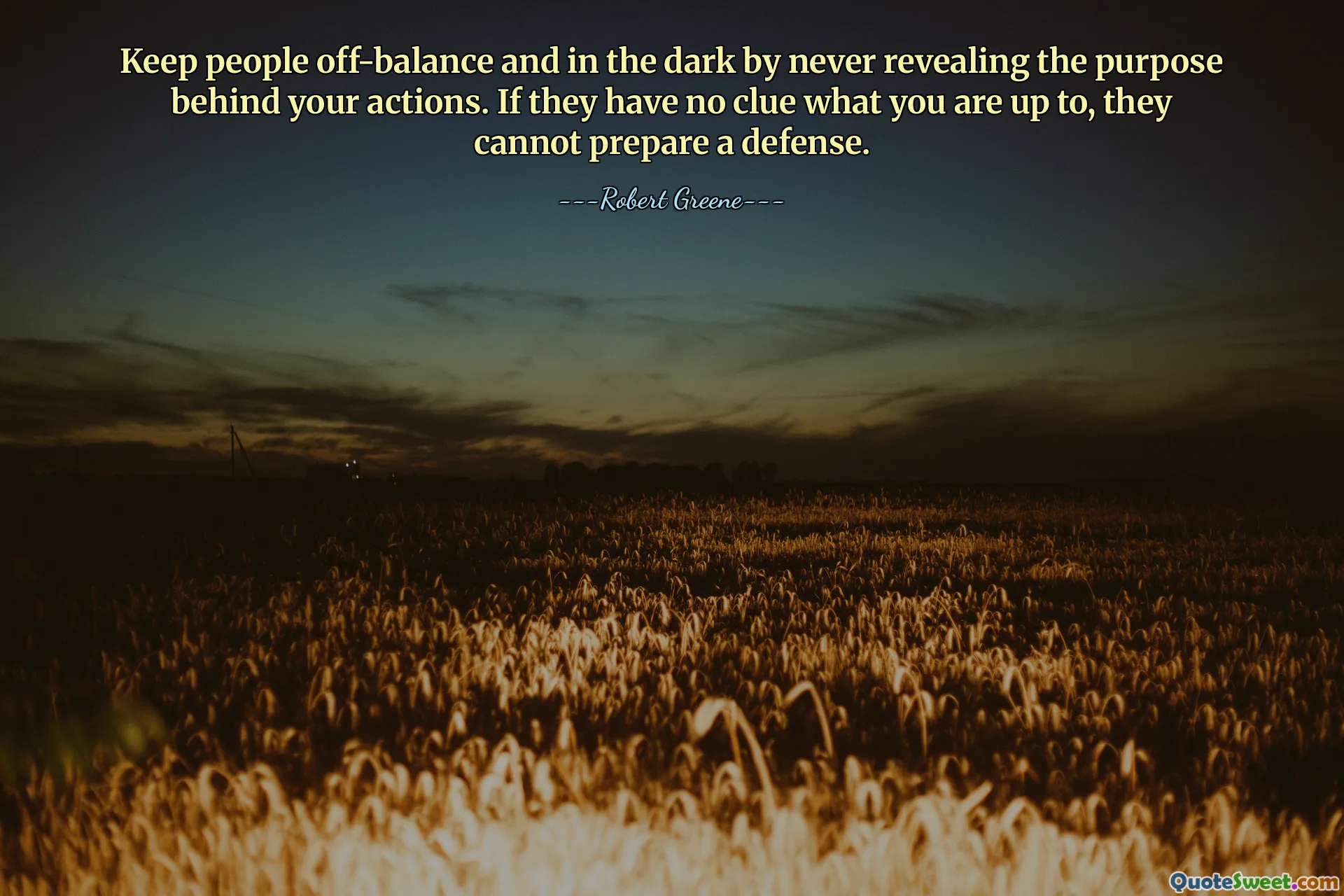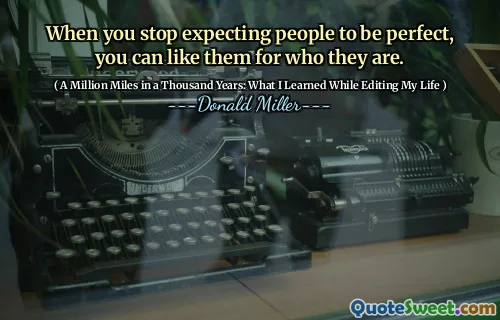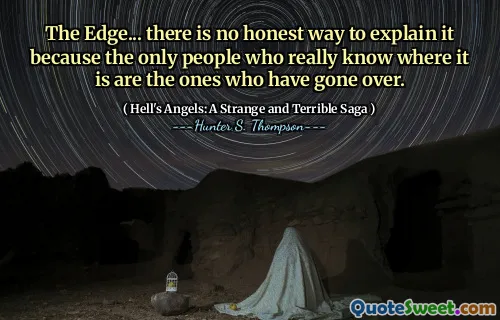
Keep people off-balance and in the dark by never revealing the purpose behind your actions. If they have no clue what you are up to, they cannot prepare a defense.
📖 Robert Greene
This quote highlights the strategic importance of secrecy and misdirection in achieving one's goals. In various social, professional, and even personal scenarios, revealing too much information prematurely can give others the upper hand, enabling them to anticipate and counter your moves. By maintaining ambiguity about your intentions, you can control the flow of information, thereby manipulating perceptions and reactions to your advantage.
The underlying principle aligns with the concept of strategic deception, which can be beneficial in competitive environments such as business negotiations, leadership, or even political maneuvering. When opponents or rivals are kept in the dark, they are less able to craft effective responses or defenses, which increases your chances of success. Nevertheless, this approach demands a careful balance; excessive secrecy can foster distrust or suspicion, potentially undermining relationships in personal and professional contexts.
Furthermore, cultivating an aura of unpredictability can discourage adversaries from attempting to undermine you or anticipate your next move. It creates a psychological advantage as others grapple with uncertainty. However, ethical considerations should be kept in mind—integrity and transparency are essential in many situations, and manipulative tactics may backfire if discovered.
In essence, strategic ambiguity revolves around the idea that sometimes, it’s more beneficial to withhold information rather than disclose it upfront. This approach requires astute judgment and careful planning, emphasizing the importance of timing, perception, and understanding human nature. When used appropriately, it can be a powerful tool for influence and self-preservation, but it must be wielded responsibly to avoid damaging trust and credibility in the long run.











